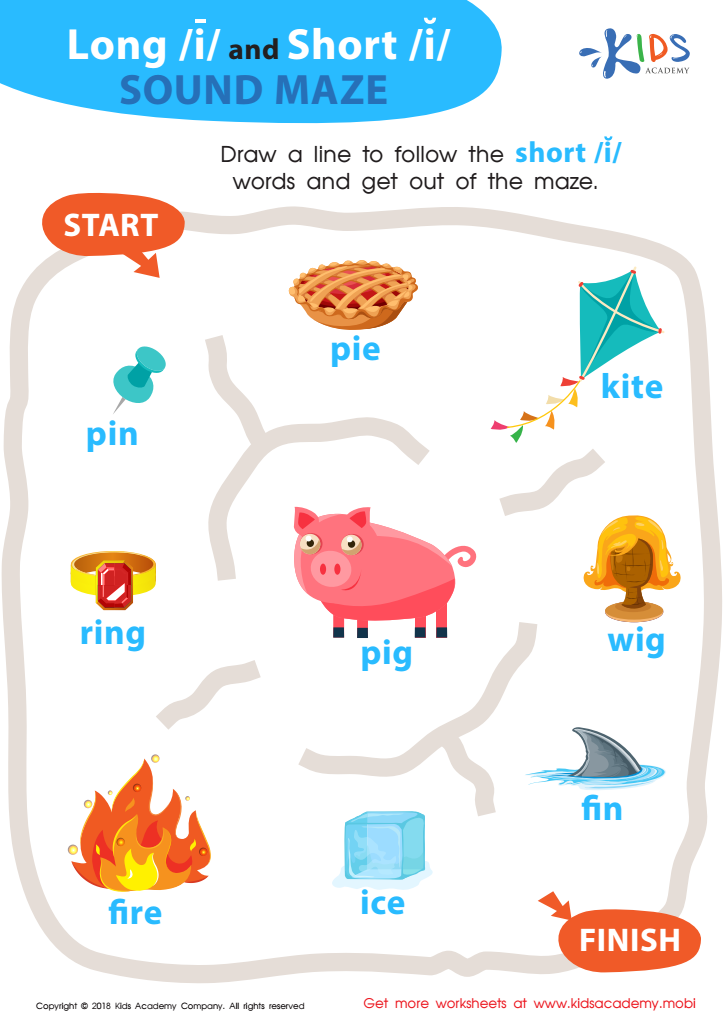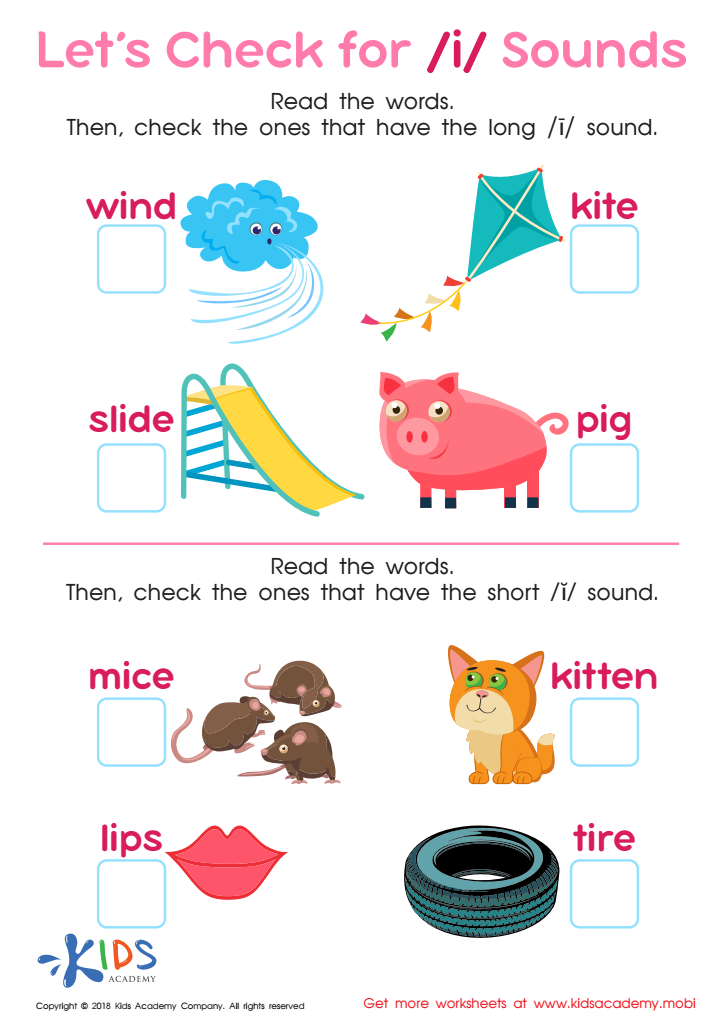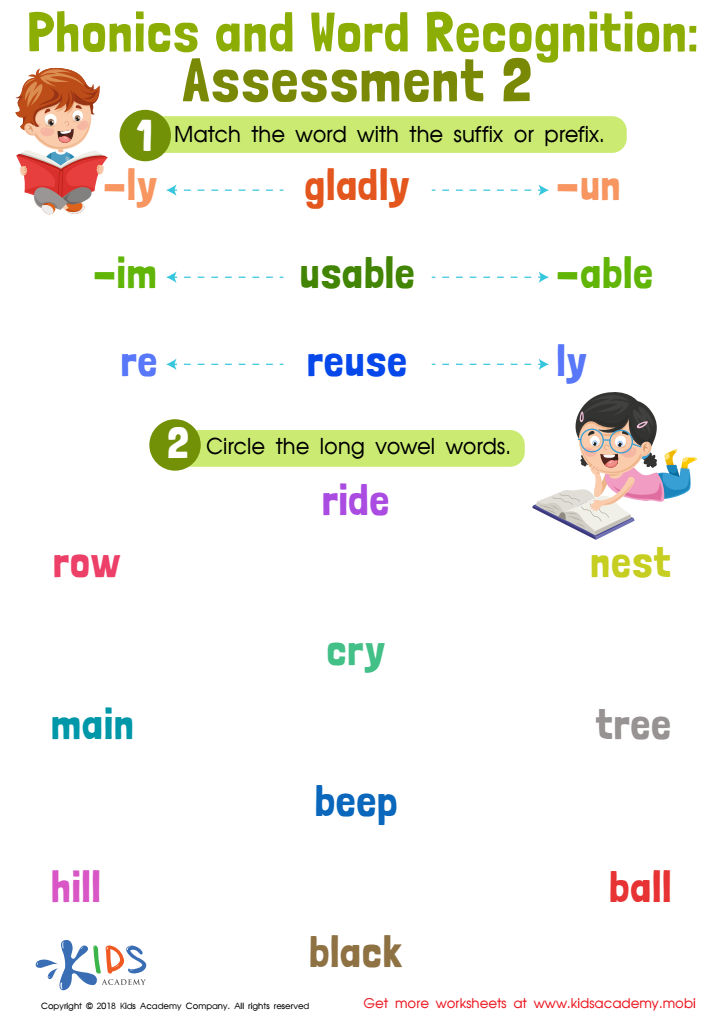Phonics recognition Vowels Worksheets for Ages 6-7
4 filtered results
-
From - To
Discover an engaging collection of Phonics Recognition Vowels Worksheets designed specifically for children ages 6-7. These worksheets enable kids to master vowel sounds through fun and interactive activities. With clear illustrations and age-appropriate exercises, children will enjoy identifying, matching, and practicing vowel sounds, reinforcing their reading and writing skills. Our materials offer a playful approach to learning that keeps young learners motivated and excited about education. Perfect for both classroom use and at-home learning, these worksheets support early literacy development in a comprehensive and enjoyable way. Unlock your child's potential in phonics recognition with our targeted resources today!


Phonics and Word Recognition: Assessment 1 Worksheet


Reading: Long I and Short I Sound Maze Worksheet


Let's Check for «i» Sounds Worksheet


Phonics and Word Recognition: Assessment 2
Phonics recognition, particularly of vowels, is crucial for children aged 6-7, as it lays the foundation for reading and writing. At this age, children are beginning to decode words, and understanding vowels is essential because they are the building blocks of syllables and words. Vowel recognition helps children pronounce words correctly and improves their spelling skills, which are vital for effective communication.
Additionally, mastering vowel sounds aids linguistic comprehension, enabling children to better grasp the meaning of texts and participate in discussions. This phonetic awareness fosters confidence in young readers, motivating them to explore more complex sentence structures and larger vocabulary as they progress academically.
From an instructional perspective, teachers can create engaging phonics lessons that incorporate games and songs, making the learning process enjoyable. This can help maintain children's interest and enthusiasm for reading. For parents, supporting vowel recognition at home through reading together and phonics-based games enhances their child’s literacy skills and fosters a love for reading, shaping lifelong learners. Thus, both parents and teachers play a pivotal role in nurturing these essential skills, ensuring children are set up for success as they continue their educational journey.

 Assign to My Students
Assign to My Students












